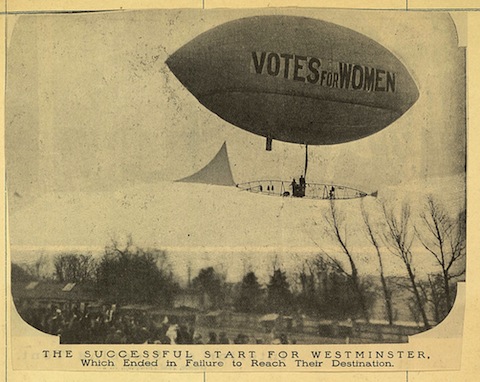E. H. Carr in conversation with Collin Brooks, BBC Home Service, 30 September 1940:
After 1919 we were always worrying about keeping up our naval supremacy. And, of course, we were right. But what did we do about the Air Force? Hardly anything. We just let it dwindle away. We thought air power of so little importance that there was a time early in the nineteen-thirties when there were six countries in the world with air forces bigger than ours. And as you know, we had not really made up the leeway when war began. If we had only outnumbered the Germans in the air as we did at sea, how different it all would have been! Well now, why did we care so much about our Navy and so little about our Air Force? Simply because our Navy had been tremendously important before 1914 — in fact for three centuries or more — and to keep a strong Navy was all part of getting back to normal, whereas we had no Air Force before 1914, and therefore Air Forces were abnormal and we thought them a nuisance. But I believe you can hardly overestimate the harm we have done ourselves by this habit of trying all the time to get back to an old world instead of bracing ourselves to the job of building a new and different one.1
So, according to Carr, in the postwar period, the British never accorded airpower the same respect as they did for seapower, simply because they were too attached to tradition. So they refused to adapt to the new reality, or in other words, did not become sufficiently airminded, and paid the price for this failure. His whole talk was not actually about airpower or even warfare as such; he was using this as an example of a widespread flaw, as he saw it, in the British psyche.
The end of September 1940 might seem a strange time to be complaining about Britain’s aerial weakness. The Luftwaffe had been assaulting the country since mid-August with little success. London itself came under continuous and heavy attack from 7 September, when the Blitz began. By the point of Carr’s broadcast, many (not all, yet) commentators in the press had already concluded that that if this was the worst that Germany could do, then the storm could be weathered.
But there was still room for criticism: the subtitle of the broadcast was ‘How did we get here?’, and Carr could have been referring to the fact that Britain was the one being attacked (if it had the bigger air force, it could have been doing the attacking — though if press accounts were to be believed, it was already doing so very effectively — or at least deterred attack by Germany). Or, perhaps more likely given his reference to the relative size of the RAF at the start of the war, that it wouldn’t have come to war at all, that Germany wouldn’t have dared invade Poland or occupy Bohemia and Moravia, etc, for fear of a powerful Bomber Command.
Incidentally, in this respect Brooks was an appropriate choice as Carr’s interlocutor: he was Lord Rothermere’s righthand man throughout the 1930s, and was chosen by him to manage the National League of Airmen in 1935. As such he was involved in one of the most ambitious attempts to create an airminded Britain. (Though nothing is made of this in the discussion/interview, and anyway it’s not clear to me how interested he was in the air problem himself, rather than because Rothermere told him to be.)
But, all seriousness aside, this opens up a whole new field of historical inquiry: what did the other great historiographical writers think about airpower? Did Elton grow up fearing the shadow of the bomber? Did Braudel sign on to the international air force concept? What did Collingwood think of the Zeppelin menace? Was Ranke in favour of military ballooning? (Don’t) watch this space …
![]() This work is licensed under a Creative Commons Attribution-NonCommercial-NoDerivatives 4.0 International License.
Permissions beyond the scope of this license may be available at http://airminded.org/copyright/.
This work is licensed under a Creative Commons Attribution-NonCommercial-NoDerivatives 4.0 International License.
Permissions beyond the scope of this license may be available at http://airminded.org/copyright/.
- “Taking stock — I. How did we get here?”, Listener, 10 October 1940, 508. [↩]




Interestingly, being a native of England/Britain/UK, I’ve noticed the British psyche is still that of trying to recreate an older “greater” country. We always seem to be looking back to a time when things were better, instead of looking forward to how we can make a better country from the crumbling ruins of the one we’ve made.
I find myself thinking the same thing. Scary stuff. I wonder if it’s genetic or to do with the weather? =o)
Nevermind – there’s a whole brave new world of warm weather on its way.
As a foreigner, I wouldn’t like to venture an opinion as to whether Carr is/was on to something! But the bit about the weather and national character reminds me of the comments of Wing Commander R. V. Goddard (second para from the bottom).
Elton is too neutral to think that bombing is either a good thing or a bad thing. We should let the shadow of the bomber speak for itself on its own terms.
Collingwood isn’t interested in the Zeppelin but he wants to reconstruct what its pilot was thinking.
Ranke loves balloons because they give him a more objective point of view.
Braudel thinks explosions are too short term to be interesting but that there is a long term cycle of international air forces.
LMAO! I can almost believe that actually, especially about Ranke …
Wouldn’t Braudel be concerned with the way long-term weather patterns affected airmindedness?
I think the connections between weather and airmindedness would be too direct for Braudel! He’d have to start with the way plate tectonics makes mountains which then influences weather …